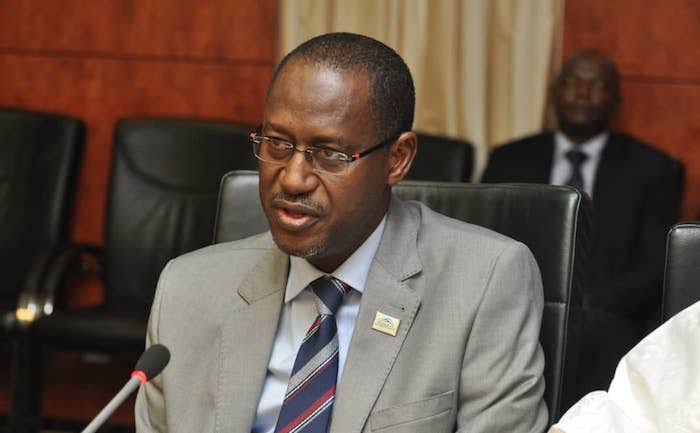The federal government has identified a lack of access to affordable housing finance as one of the major causes of the housing deficit in Nigeria, saying that 80 percent of the citizens cannot afford even a mortgage to buy a home.
The minister of housing and urban development, Ahmed Musa Dangiwa, stated this yesterday in his keynote address at the opening of the maiden Kaduna International Housing Exhibition, held at Umaru Musa Yar’Adua Hall, Kaduna.
He said the major issue governments at all levels must address in their desire to deliver sustainability to the citizens is affordability.
The minister added that statistics have shown that almost half of Nigeria’s over 201 million population is poor and has weak purchasing power.
“In fact, of the 43 million households, over 85 percent have less than N1.1 million purchasing power. Of this, 40 percent (about 17.2 million households fall into the poverty income group, and 47 percent (about 20.2 million) fall into the low-income group.
“On the whole, statistics reveal that Nigeria is a low-income country as it has only 13 per cent of its population middle class. The recent macro-economic challenges, including inflation, have made things worse,” he said.
He, however, said that President Bola Ahmed Tinubu-led government, through the Ministry of Housing and Urban Development, is planning to establish a National Social Housing Fund (NSHF).
Dangiwa explained that, under the NSHF, the federal government is aiming to pull funds from the government budget, philanthropic organisations, and well-meaning Nigerians to provide decent shelter for Nigerians with no income, low income, and vulnerable brackets who cannot afford to own their homes.
He said, “Some of these units will be delivered at no cost. We have developed the concept note, which is undergoing review. Once concluded, we will present it to the Federal Executive Council (FEC) for approval and legislation.
“Social housing is not only a necessity but also a security insurance for the rich and the poor. Because housing is capital intensive and the government has limited funds, we must find alternative collective avenues to help our brothers and sisters who are underprivileged. It is for our collective good.
“In this way, the underprivileged will know that we are one, our brother’s keeper, and that will help social cohesion, understanding and peace. Homeownership gives individuals a sense of belonging and a stake in the community,” the minister said.
However, he commended the Governor Uba Sani-led government of Kaduna State for its practical, inclusive, and pragmatic vision in housing delivery, which led to the organisation of the maiden Kaduna International Housing Exhibition.
Earlier in his address, Governor Sani, who was represented by his deputy, Dr Hadiza Sabuwa Balarabe, said providing affordable houses for Kaduna State citizens was a key priority of his administration and committed to addressing the housing deficit across the state in line with President Bola Tinubu’s Renewed Hope Agenda.
He said that the Kaduna State government had adopted a holistic approach to filling the identified gap through partnerships with local and international investors to address its housing deficit frontally.
According to him, “Qatar Charity, in partnership with the Kaduna State Government, is constructing Mass Housing for the Less Privileged and Kaduna Economic City, all in Millennium City, Kaduna. I recently performed groundbreaking work on constructing the 3,319-hectare Nuru Suraj Ungwar Dosa New Extension Layout. This project is being executed through a public-private partnership. Nuru Suraj and Kaduna State Government are working together to develop 35,000 plots for our people.”
“The Social Housing Scheme was introduced to provide affordable accommodation as a social service for the vulnerable populace (the low-income earners). Efficient design and construction methods, which are key indicators that drive the affordability target of the scheme, were employed,” he said.





